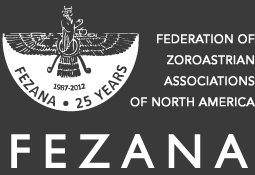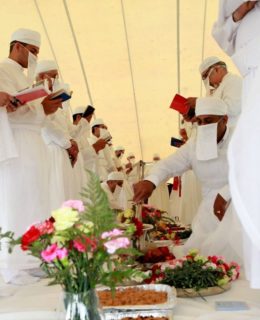| Dear Religions for Peace leaders and Colleagues in faith, We are pleased to share below the statement of the International Women’s Coordinating Committee and Global Women of Faith Network on Overcoming [Sexual] Violence Against Women. We encourage all to circulate it as widely as possible. Statement Statement of Religions for Peace Women of Faith on Overcoming (Sexual) Violence Against Women25 Nov – 10 Dec 2021 | 16-Days of Activism Against Gender-Based Violence On the occasion of the 30th anniversary of 16 Days of Activism Against Gender-Based Violence, (GBV) we, women of diverse faiths, beliefs, traditions and spiritualities, from different countries around the world, come together to speak out against violence in all forms, particularly against girls and women, who continue to suffer multiple forms, and disproportionately so. According to our partners the World Health Organisation (WHO), 1 in 3 women – around 736 million globally – experiences physical or sexual violence throughout her/their lifetime[1]. The trauma arising from experiencing gender-based violence (GBV) prevents women from fully participating in economic and societal activities, and generates additional costs for the health, legal, social services sectors and perpetuates a culture of violence in societies. The global COVID-19 pandemic has only intensified forms and frequency of these human rights violations. We are deeply concerned at the dramatic exacerbation of GBV in this period, so much so that many activists now refer to this as a shadow pandemic. Devastatingly, incidences of GBV used as weapon of war, are on the rise. We condemn this reality in the most vociferous terms, as we demand the end of silencing, blaming, and shaming of victims – while too often perpetrators walk free. Just as devastating, is the increase in one of the many forms of GBV – human trafficking. We insist that part of our merciful approach to these atrocities is to insist on reintegration and support for survivors of all forms of GBV. We acknowledge that religions, faith traditions and spiritualities can be a source and driver of conflict, polarization, and even stigma and marginalization. And as we work together across religions and spiritualities, regions, identities, and areas of expertise, we also know, beyond a shadow of doubt, that faiths, collaborating in service, are a powerful force for a just, peaceful, and harmonious coexistence. There is no similar or parallel force of nature, than that of all faiths uniting for holistic peace. As women of faith with hearts and careers wholeheartedly committed to the deep spirit and actual service to realise gender justice, we point out that we are part of faith institutions and communities and civil societies in each and every corner of the world, already serving the most vulnerable. We are not outliers. Ours is the oldest ethos of servant leadership, learned and lived and loved through our generations and ancestors. Together, we commit to:Honouring the legacy of multi-religious collaboration by serving alongside one another, transcending boundaries of difference and strengthening relationships of trust among our diverse communities. Continuing to tend to the educational, health, nutritional, ecological, cultural, political as well as psycho-social and spiritual care needs of millions of communities. Breaking the silences around gender-based violence, which continue to create trauma, pain, and suffering among individuals and communities, by raising our voices, in unison at each and every opportunity and forum. Seeking partnerships among governmental, intergovernmental, and non-governmental (civil society) entities, as we represent many faith traditions, communities, and cultures across the world, working successfully as a multi-religious entity – Religions for Peace. As we commit, we unite our voices to call for the following wisdom: To Governments and intergovernmental organisations: ensure a ‘whole of government’ as well as a ‘whole of society’ approach to tackling GBV. This means ratifying all the international conventions, and ensuring our own national legislation is amended accordingly. For example, ensuring the ratification of the Istanbul Convention on preventing and combating violence against women and domestic violence and the ratification of the ILO Convention 190 on ending violence against women in the formal and informal working environment. Work with all civil society entities (including religious and multi-religious ones) to inform and support their mobilization to use their respective strengths to eradicate GBV in all its forms. Regularly monitor GBV engagement among diverse religious institutions and communities and support religious/interreligious entities to gather data and research as to incidences of GBV eradication strategies and means and laudating those who are innovative and successful in working through their organisations to raise awareness, amend legislation, and reduce GBV instances in war and peace times. To our Religious Institutions and faith-based communities and entities: we must raise systematic and systemic awareness about GBV, and the means to identify, report, heal and prevent these atrocities. To which end, we ask For more learned and trained use of social media as platform to provide and spread information to fight and prevent GBV. Ensure the information is provided in local languages, including indigenous languages. For male religious leaders to work with us and more with one another to raise awareness about all forms of GBV and to take responsibility and denounce these. For all faith leaders to join global awareness raising campaigns e.g. Join the UN Women UNiTE campaign called “Orange the World: END VIOLENCE AGAINST WOMEN NOW!” during 25 November to 10 December 2021. Join the Thursdays in Black campaign led by the World Council of Churches, which calls upon people of faith to wear black on Thursdays and to raise awareness about gender-based violence and to call upon preventing and ending gender-based violence. As we continue our work to serve survivors of GBV around the world, during this time of multiple global challenges, we remember to also to pray for those still suffering from the many impacts. We reaffirm our commitment to the Religions for Peace mission and purpose: of serving, together, for the common good, so as to leave no one behind. On behalf of:Religions for Peace International Women’s Coordinating CommitteeGlobal Women of Faith Network [1] WHO: Devastatingly pervasive: 1 in 3 women globally experience violence (9 March 2021): https://www.who.int/news/item/09-03-2021-devastatingly-pervasive-1-in-3-women-globally-experience-violence |
Statement on Overcoming Violence Against Women
Press Room
Search

FEZANA represents a diverse and growing Zarathushti community in North America.
Guided by the blessings of AHURA MAZDA and the teachings of our Prophet Zarathushtra; the Federation was founded in 1987 It serves as the coordinating body for 26 Zoroastrian Associations and 14 Corresponding Groups in the United States and Canada.
The activities of FEZANA are conducted in a spirit of mutual respect, co-operation and unity amongst all Member associations, and with due regard for the principles of GOODNESS, TRUTH, REASON, BENEVOLENCE, IMPLICIT TRUST and CHARITY towards all Mankind.
:+: Baname Khoda Kshnothro Ahura Mazda



